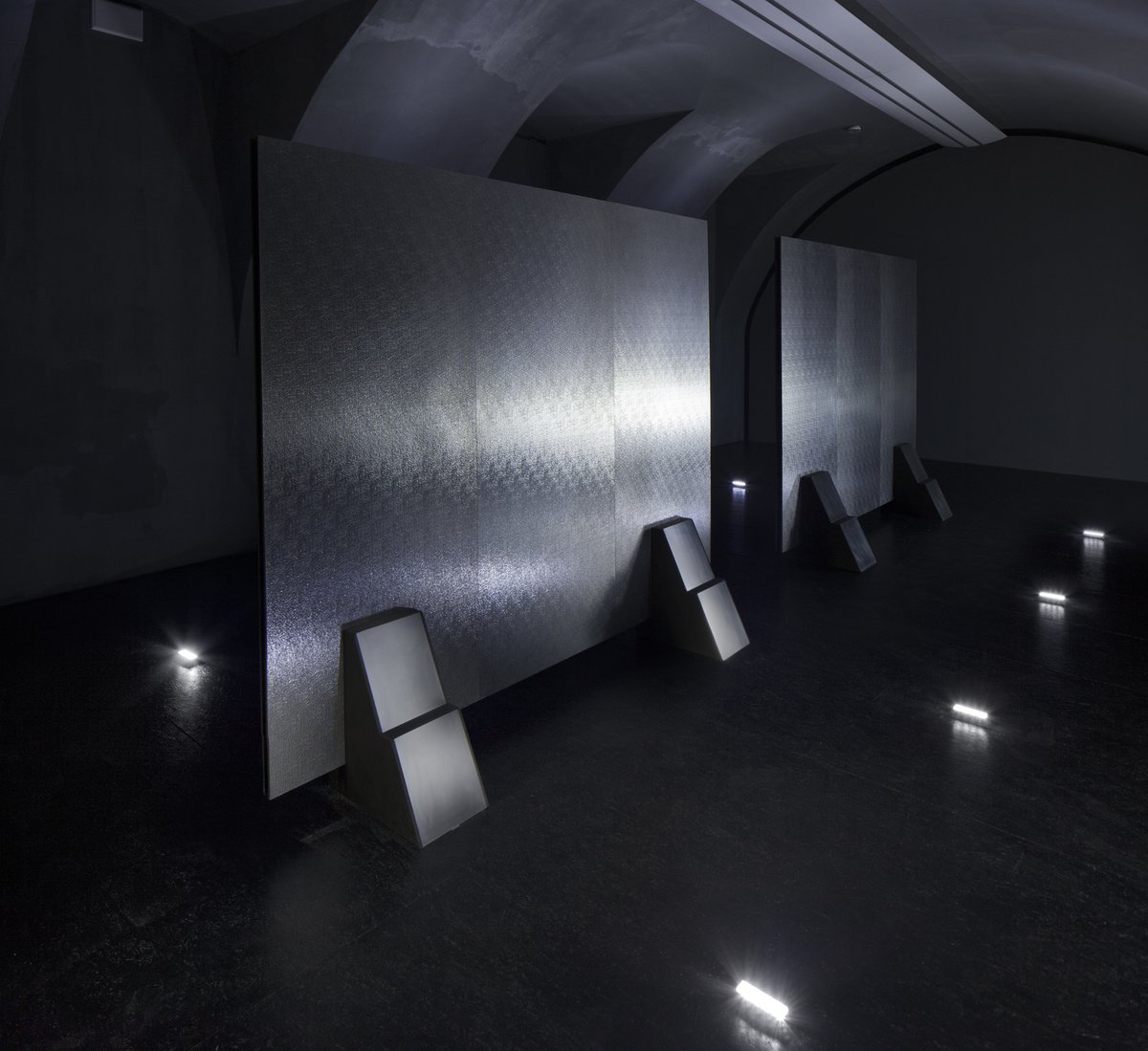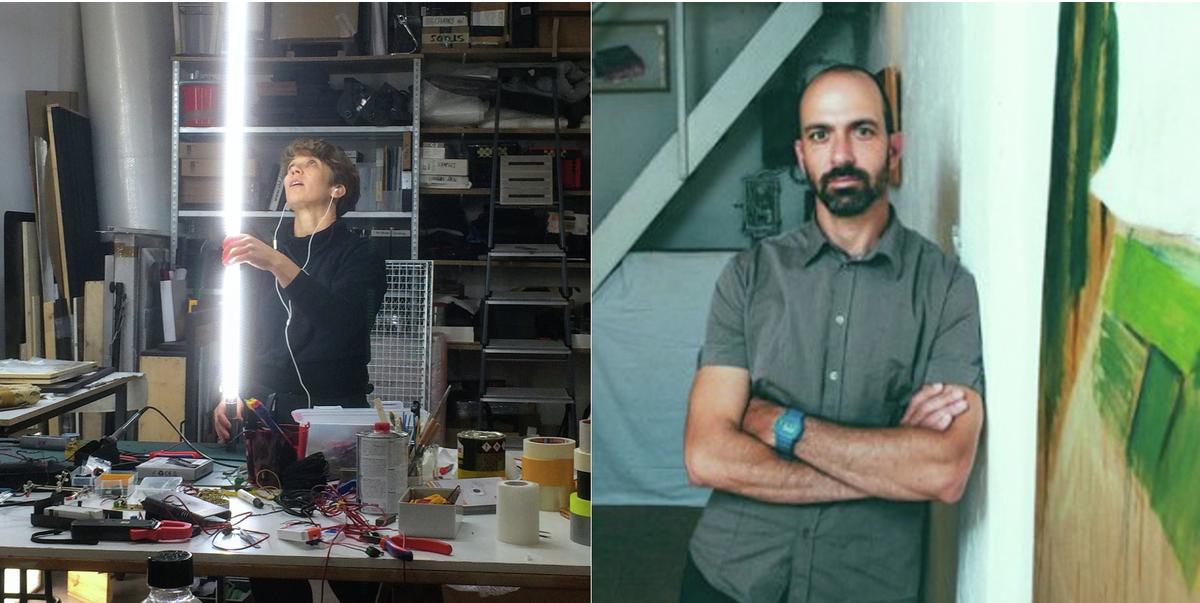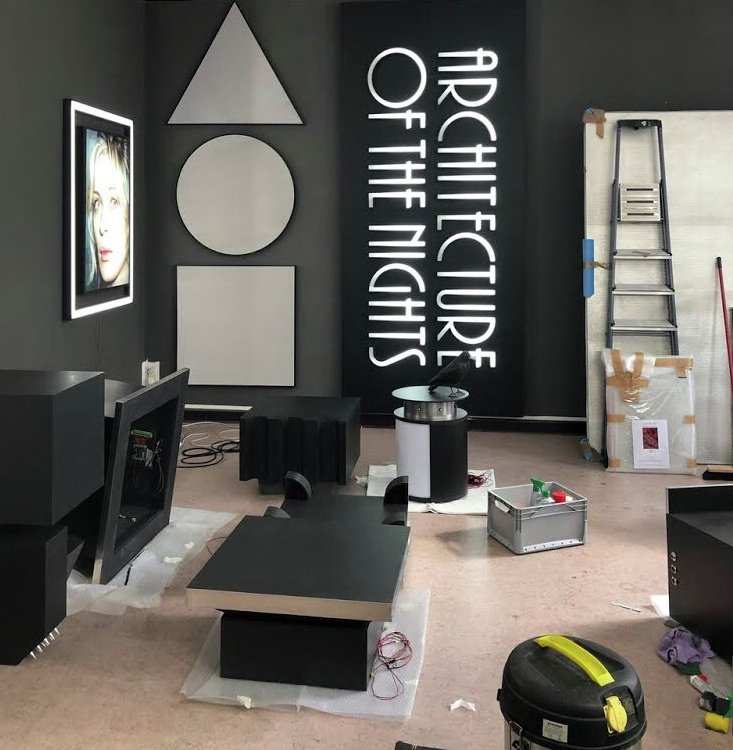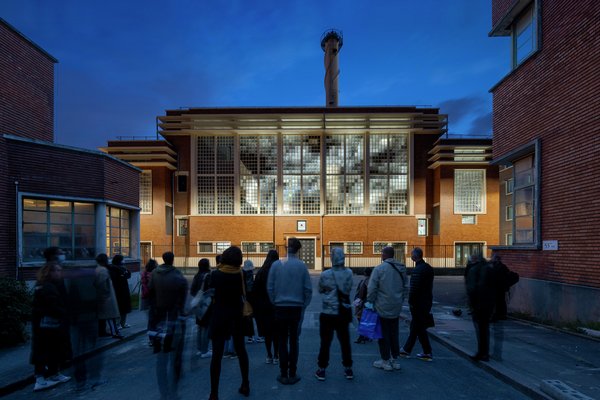Signals from the Studio… Artist Alona Rodeh on Architecture of the Nights

Alona Rodeh, The Dragon Teeth of Jerusalem, 2019, LED lights, MDF, aluminum, robotic vacuum, dimensions variable. Installation view at Kunstpalais, Erlangen, Germany. Photo credit: Ludger Paffrath.
In this segment of Artis’ audio interview series, we speak with artist Alona Rodeh about her interest in urban environments, industrial products, and nightlife culture, which are integral to her research process.
In her practice, Alona introduces new ways of navigating and understanding the city. She creates sculptures and large-scale installations that negotiate the feeling of safety—alluding to ways that security and control are implemented in public space—and the experience of discretion, freedom, and escapism of nightlife culture. Sound, light, and movement are core components of her aesthetic. “I don’t build manipulative narratives,” she says, “I do manipulations, but more on an abstract level, in terms of space and how you move in space. I think it’s important to leave things open. [My work] is shedding light on phenomena that are happening, and transforming them in ways that are more evident.”
In this interview, Alona speaks about The Dragon Teeth of Jerusalem (pictured above), an installation that was part of her solo show, Architecture of the Nights, at Kunstpalais Erlangen in Erlangen, Germany in 2019. Installed in a dark room in the basement, static and mobile sculptures and lights regulate visitor’s movements. Modular structures in the installation allude to layered social, political, and architectural histories. The title of the work refers to large fortifications that were installed in Italy during World War II, to prohibit military vehicles from passing, and are used as an element of obstruction in the work. Searchlights, an apparatus made for a military context, and now used in the entertainment industry, are included in the installation as a reflection on the use of artificial light in the city. Alona also discusses her projects Safe and Sound (2015), exhibited at Grimmuseum in Berlin, about the safety industry and products that promise to assure security, and Above and Beyond (2013) presented at the Center for Contemporary Art, Tel Aviv, that is an abstract recreation of the Wailing Wall in Jerusalem.
This interview was conducted in the spring of 2020, and edited for conciseness. It is part of Artis’ audio series, Signals from the Studio… where we speak with artists from Israel, and delve into current topics in contemporary art and culture that they address in their practice. Signals from the Studio… is produced by Artis and made in partnership with journalist, urbanist, and writer, Yonatan H. Mishal, who hosts the interviews.
Participant Bios

Image (left to right): Alona Rodeh in her studio in Berlin, photo by Rachid Moro. Yonatan H. Mishal, photo by Yuli Gorodinsky.
Alona Rodeh is a visual artist from Israel, based in Berlin. Sculpture and large-scale, often room-spanning installations that combine light, movement and sound, are at the core of her artistic practice. Holding an MFA from the Bezalel Academy of Art and Design in Jerusalem, her works have been shown internationally in public institutions, museums, and galleries. She also frequently collaborates with local municipalities on temporary and permanent public commissions. Upcoming projects include a research project focused on urban illumination in Berlin (2020-2021); two subsequent solo shows at Christine Koenig Gallerie in Vienna and Rosenfeld Gallery in Tel Aviv (October and December 2020); a new commission for Fondation Fiminco, Paris (May 2021); and group exhibitions at Ashdod Museum in Ashdod, Israel (October 2020) and La Casa Encendida in Madrid, Spain (October 2021). www.alonarodeh.com
Yonatan H. Mishal is an urban explorer and writer, based in New York City. He currently works with the United Nations, in the department of global communications, and as a correspondent for Erev-Rav arts and culture magazine in Israel. His writing includes investigative journalism, commentary, reviews, interviews and art critique. His ongoing project in the past ten years of conducting interviews with curators and artists, aims to draw a real-time, first hand picture of the Israeli art scene.

Architecture of the Nights at Alona Rodeh’s studio, winter 2019. Photo by Hillit Zwick.
To learn more about Alona Rodeh's art practice
Readings recommended by Alona Rodeh
Selection of readings that influence Alona Rodeh's art practice:
